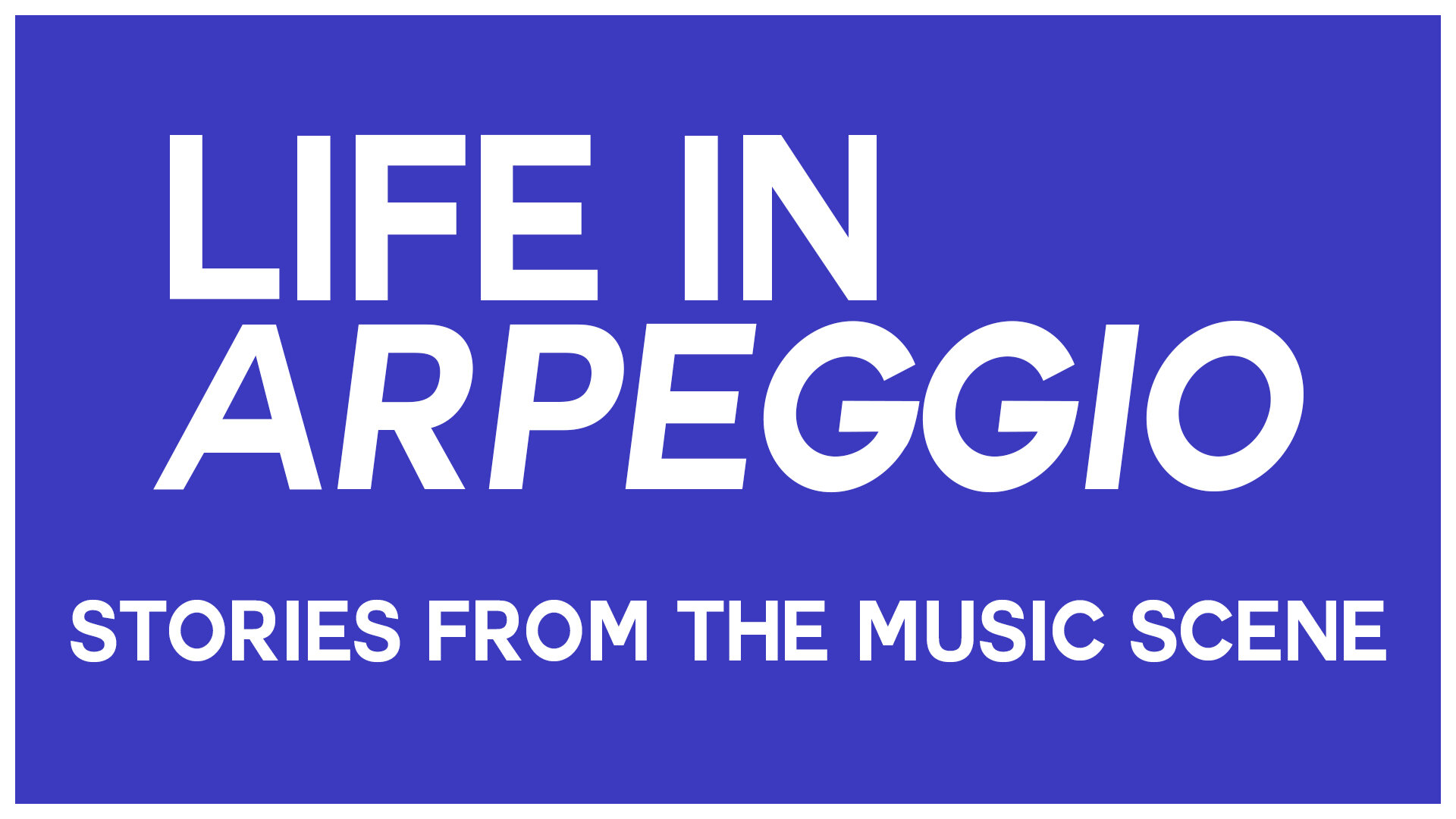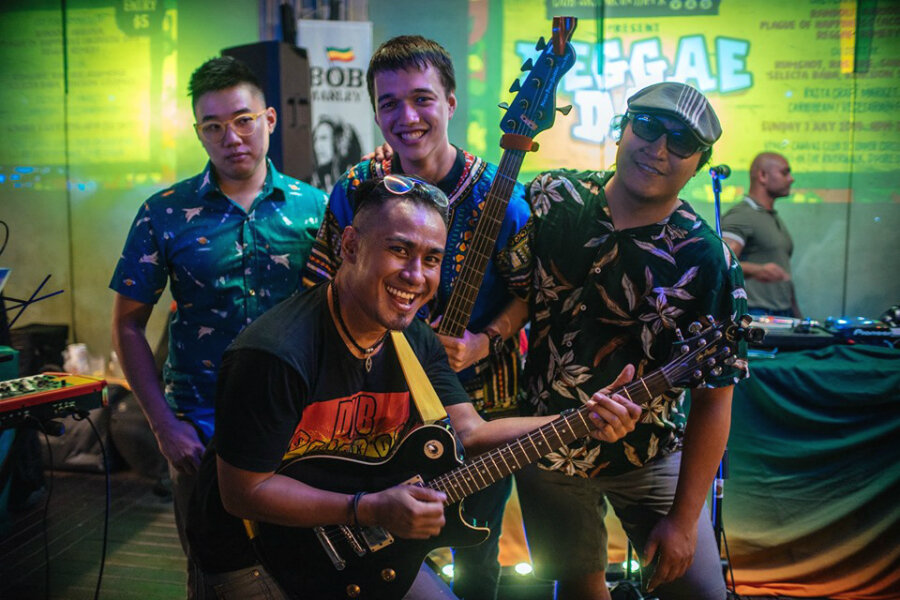Rastafari Roars In The Scene: Dub Skank’in Hifi Soundsystem & Their Reggae Fiestas
Firmann and Wan have been running the reggae movement of Dub Skank’in Hifi Soundsystem for nearly a decade
Every genre of music comes from somewhere. Just like the unbreakable bond between juke and Chicago and how you can’t dissociate soukous from the Congo, reggae is rooted in an origin that’s universally recognised. In that vein, when you celebrate a discipline of music, you are, in varying degrees, honouring the culture from which it stems from. Some promoters might not bat an eyelid when it comes to cherishing a genre’s authenticity and background. But for others, respecting it is as vital as living life itself.
When people often ask me if our Singaporean scene is a thriving one, I respond affirmatively with spiels regarding diversity, and there’s usually one example I cite without hesitation.
“Do you know that our music scene has a simmering Jamaican subculture” I tend to ask, “where you can find ska, rocksteady and other Rastafarian influences?”
Tributes to reggae legends are common
For nearly a decade, that’s precisely what the free-spirited troopers from Dub Skank’in Hifi Soundsystem (DSHS) have cultivated in the scene, turning an unlikely subculture into a recurring mainstay. Often decked in Jamaican hues of red, green and gold, these bashments are hotbeds of its culture, from its beats to its eats.
A selector spinning swaggery reggae anthems, a marketplace peddling vintage dub records and sustainably crafted works, the aroma of freshly grilled jerk chicken and Ital-inspired cuisine – these are just some of the many sights and sounds you’d find at a DSHS jamboree. Popping up in assorted locations like Canvas and Intermission Bar at The Projector, the events organised by them encompass reggae festivals, gigs that rope in international and regional artistes, and even prominent dates such as the birthday of the late Bob Marley.
You can often find rare reggae records at these events
Jerk chicken fresh off the grill
Instrumental in keeping this movement alive are Firmann Salim and Wan V, who are also the resident DJs of DSHS under the aliases Rumshot and Ras Irie respectively. For Firmann, who’d played in ska bands and worked as a sound technician for reggae groups like Bushmen in the 2000s, he saw the full potential of reggae’s bloom in Singapore after being based in the UK for a few years, having attended Rasta jams and Caribbean carnivals over there.
Firmann has been a stalwart of the reggae scene in Singapore
“When I first came back to Singapore, one of the primary things I wanted to do was start a reggae soundsystem in Singapore. We didn’t have a consistent reggae movement; there’d always been reggae, but it’d either be bands or random pop-ups. So when I came back, I approached Wan to do regular reggae events. I was given the opportunity at Blu Jaz Café at the time, because Wan had a record store in Bali Lane called Straits Records. It grew to a point where it was so rammed that we couldn’t even move anymore. All you could see were just heads and people bobbing up and down. And eventually, we grew and took the second and third floors of Blu Jaz. This was in 2010 or 2011.”
Scenes from their past events in Piedra Negra back in 2013 (Credit: Dub Skank’in Hifi Soundsystem Facebook page)
(Credit: Dub Skank’in Hifi Soundsystem Facebook page)
With the flames fanned, the reputation of DSHS blazed through the scene, moving to Piedra Negra in early 2012 as the crowds of reggae and ska fans grew larger. They would go on to spread their soundsystem in scattered venues like Bar Bar Black Sheep in Clarke Quay, the skate park at the old *SCAPE in Orchard Road, the now-defunct Refuge and Artistry, and even beyond borders in Kuala Lumpur and Indonesia.
In a club milieu that seems dominated by hip-hop and 4/4 trends, one might wonder if reggae struggles in finding a home, or even getting past venue hosts for their seal of approval. According to Wan and Firmann, however, convincing these venues to have faith in such events over the years wasn’t that huge a challenge.
Wan has dedicated his life to the culture for over 20 years
“Reggae is very much close to other genres. You can attract the ska scene, the punk scene; it’s not really exclusive. It’s able to reach out to more people,” Wan shares. On this openness from punters and venue owners, Firmann concurs, “Internationally, it’s grown bigger. There’s a greater awareness of not just reggae culture, but also Jamaican culture. The music even permeates through current music, like Diplo. So for us, we’ve never stopped pushing reggae. We’re always finding new venues, and we’re quite lucky that people approach us”.
You can sometimes spot their events at The Projector (Credit: Dub Skank’in Hifi Soundsystem Facebook page)
It’s not difficult to fathom why these parties harness such infectious appeal, as they offer more than just a glimpse into a foreign culture, but also spread a philosophy commonly embraced by all. “The theme of reggae is love and friendship. You can’t really go wrong with those kind of themes,” shares Wan. “In the scene, we also don’t judge you if you’re not like us. There’s not too much focus on things like fashion, but more on the community.” It is precisely this belief that makes everyone feel welcome at a DSHS party, even if you know nothing about Caribbean culture.
Although, for those of you who do, you might find yourself wondering about a certain association tied to the history of reggae, and how it can endure it in a country clamped down by strict laws regarding narcotics. It’s no secret that reggae, especially in Jamaica since the 1930s, harbours a close-knit relationship with ganja and its consumption – a habit related to the natural lifestyle of Rastafari. With this in mind, has it ever raised any red flags in the parties organised by DSHS? Firmann and Wan shake off this concern with confidence.
“People might have this connotation that reggae is only about ganja and smoking, but it’s way beyond that,” Firmann reassures. “There are so many other aspects of Jamaican culture that are quite broad. They have dance, they have reggae music which has, in itself, a long history. Also dancehall culture, which is really big now. Food is a big part, and the crafts that promote Rasta culture are all about sustainability and how to make good of yourself.”
There’s a whole world to discover within Jamaican culture (Credit: Dub Skank’in Hifi Soundsystem Facebook page)
“The negative part is something people don’t look at so much because they come to our events to enjoy and have fun. And they also know about the strict laws that we have. So I don’t think people focus too much on weed and all that,” Wan continues on quelling the stigma.
Besides, the longstanding endurance of DSHS in the scene should be testament enough to this unfounded concern. The community continues to grow as a family-friendly affair, and the resilience of reggae in the scene glows brighter than ever. Through the pioneering first steps of Firmann and Wan, this has given rise to the birth of other reggae promoters and soundsystems, such as Singapura Dub Club and Lion Steppaz Sound by way of Japan.
Ken from Lion Steppaz Sound performing for their Reggae Day 2019 event at Canvas
“Yeah, we’re the pioneering reggae soundsystem in Singapore,” Firmann affirms. “Ken from Lion Steppaz Sound used to come to our nights when he first came to Singapore, as did Masia One with whom I helped set up Singapura Dub Club. When we do our events, we invite all people who used to come celebrate reggae with us. It’s good for us to be able to do this and bring communities together.”
All generations are welcome here
With open arms, they have also welcomed live musicians to grace their festivities, even those who aren’t typically known for reggae music. These include guest appearances from the likes of Instigator Afrobeat Orchestra, and even loop-specialised maestro, Randolf Arriola. They join reggae and ska band, Reggae Remedy – which Firmann is also a part of – that also widens the community by incorporating Malay influences and lyrics into the Jamaican genre.
Randolf Arriola
Reggae Remedy (Credit: Bobby Dread)
It is these personal touches and genuine love for the culture that’ve made DSHS a movement of appreciation, not appropriation. DSHS is run by devotees who live and breathe the practice they preach, and it shows in each and every event that Wan and Firmann push out.
“People are happy to see reggae take wings in Singapore,” Firmann mentions enthusiastically. “The Rastas are righteous people; people who take it to the next level with music.”
Given that that is precisely what Dub Skank’in’ Hifi Soundsystem is accomplishing, I’d say that the lionhearted spirit of Rastafari roars loudly through them.
For more information on Dub Skank’in’ Hifi Soundsystem and their upcoming events, visit their official website.


















